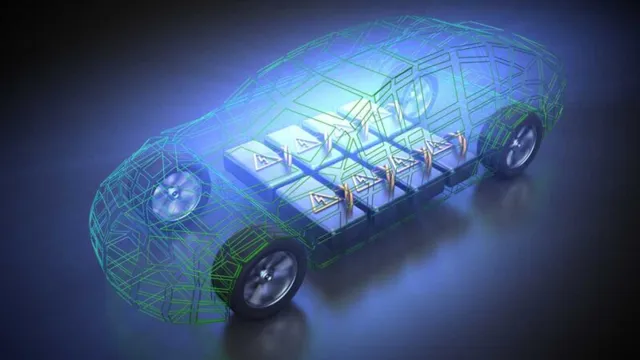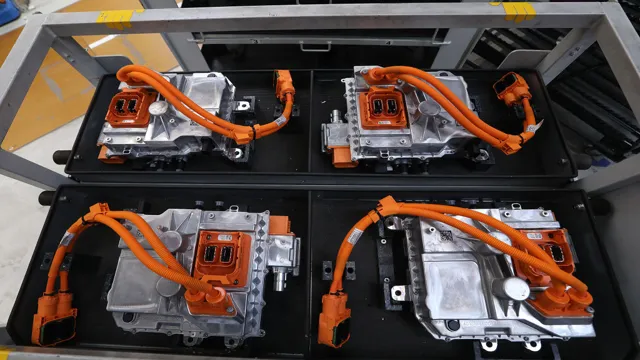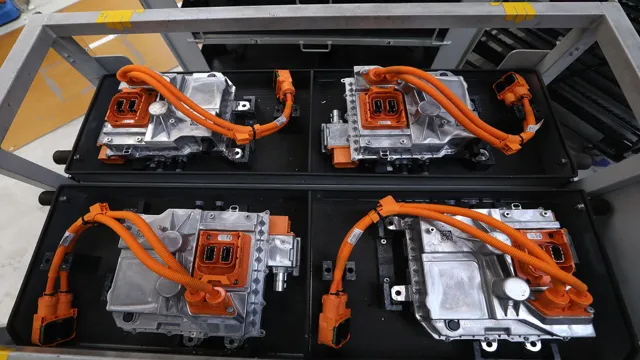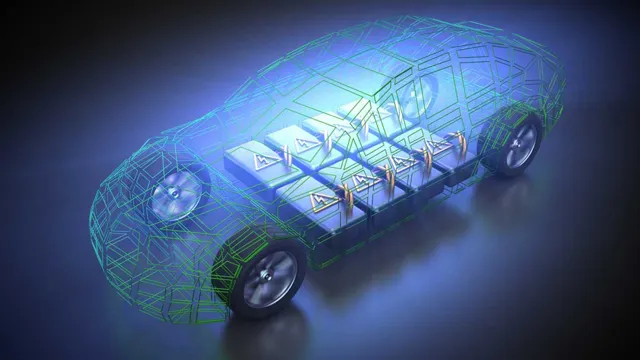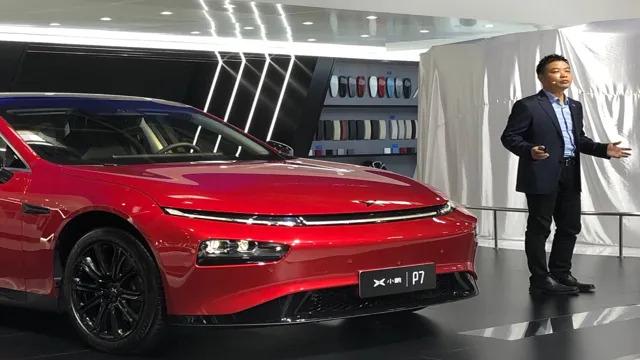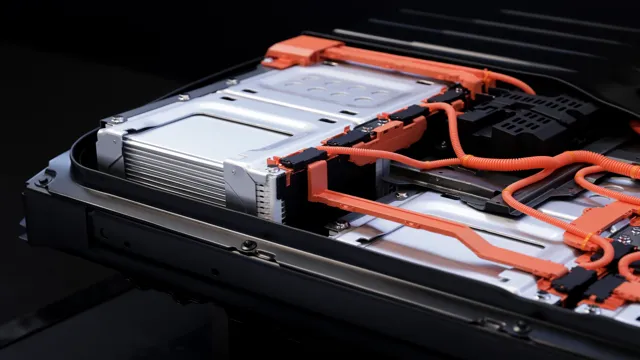The Shocking Truth: How Much Do Electric Car Batteries Really Cost?
Electric cars are a fantastic way to reduce carbon emissions while enjoying a smooth and quiet ride. However, one of the biggest concerns people have when considering purchasing an electric car is the cost of the battery. How much does a battery replacement cost? How long will it last? In this comprehensive guide, we’ll delve into the intricacies of the cost of electric car batteries, breaking down the factors that impact the price and providing insights into how to make the most cost-effective decision when it comes to buying and maintaining an electric vehicle.
So buckle up and get ready to learn everything you need to know about the cost of electric car batteries!
Understanding the Cost of Electric Car Batteries
The cost of electric car batteries has been one of the biggest factors holding back the widespread adoption of electric cars. However, the cost of these batteries has been decreasing steadily for several years, making electric cars more affordable to consumers. The cost of a battery pack varies depending on the capacity and the type of chemistry used, but a typical electric car battery will cost between $5,000 and $15,000.
While this may seem expensive, it is important to note that the cost of owning an electric car is significantly lower than a traditional gas-powered car, thanks to lower maintenance and fuel costs. In addition, as battery technology continues to improve, prices are expected to decrease even further, making electric cars even more accessible to the average consumer. Overall, the cost of electric car batteries is a crucial factor to consider, but with the cost of ownership decreasing and technology advancing, it is becoming less of an obstacle to widespread adoption.
Factors That Affect the Cost of Electric Car Batteries
Electric Car Batteries Electric cars are rapidly gaining popularity due to their environmental friendliness and lower cost of operation. However, a major factor that’s still holding back their mass adoption is the cost of electric car batteries. Understanding the cost of these batteries is essential for anyone considering buying an electric car.
So, what are the factors that affect the cost of electric car batteries? First and foremost, the size of the battery is a key determinant of cost. Larger batteries that provide higher ranges come at a higher cost. Moreover, the materials used to make the batteries are also a significant cost factor.
Lithium-ion batteries, which are the most commonly used batteries in electric cars, are comparatively expensive due to the need for rare minerals. Other factors that affect the cost of electric car batteries include the level of charging infrastructure available, research and development costs, and manufacturing costs. In summary, the cost of electric car batteries is a complex interplay of several factors, and understanding these factors is crucial to make an informed car buying decision.
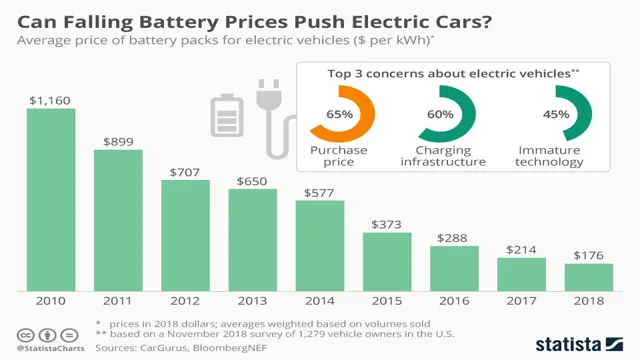
Comparing the Cost of Electric Car Batteries to Gasoline Cars
Electric car batteries. Electric cars have become more prevalent on the market as sustainable solutions are being sought. One important factor for electric vehicle owners to consider is the cost of the battery.
While gasoline cars simply require you to refill the tank, electric cars’ batteries will need to be replaced. However, there are tremendous advancements in electric car batteries, making them more cost-efficient than ever before. The cost of electric car batteries, which used to average $1,000 per kW-hr in 2010, has dropped steadily as the technology improves.
Today, the price is around $150 per kW-hr. Additionally, many electric car manufacturers offer warranties on their batteries, which can cover replacement costs. As a result, electric car batteries are now much more affordable and are on a par with the cost of owning a gasoline car.
Furthermore, electric cars offer lower long-term costs since they require minimal maintenance, no oil changes or engine tune-ups, and electric fuel is much cheaper than gasoline. Overall, while the cost of purchasing an electric car with a battery may be slightly higher than a gasoline car, with the repeated savings on fuel and maintenance, it is a long-term investment that pays off.
The Cost of Electric Car Batteries: Current Trends and Future Predictions
The cost of electric car batteries has been declining over the past years due to advancements in technology, economies of scale, and increased demand. According to BloombergNEF, the average price of lithium-ion batteries fell by 87% between 2010 and 2019, making electric vehicles a more feasible alternative to gasoline-powered cars. However, despite the decline in battery prices, the upfront cost of electric cars is still higher than traditional cars.
The cost of electric batteries for cars largely depends on their size and capacity, with larger batteries costing more. Experts predict that the cost will continue to decrease, with some expecting it to reach parity with gasoline-powered cars by 202 The drop in prices will make electric vehicles more affordable and accessible, driving the market for electric cars forward and making them more attractive to consumers in the future.
As technology evolves and improves, the cost of electric batteries for cars will continue to decrease, making it a promising and sustainable option for drivers who are looking for greener alternatives.
Historical Trends in Electric Car Battery Costs
Electric car battery costs have been decreasing over time due to advances in technology and increased production. Between 2010 and 2016, the cost of lithium-ion batteries, the most commonly used type in electric cars, decreased by 73%. In 2020, the average cost of an electric car battery pack was around $137 per kilowatt-hour (kWh), a steep reduction from $1,100 per kWh in 200
As a result of this trend, electric cars are becoming more affordable, appealing to a wider range of consumers. Analysts predict that the cost of electric car batteries will continue to fall, making them even more cost-competitive with traditional gasoline-powered vehicles. By 2023, the cost of an electric car battery is expected to fall below $100 per kWh, which is considered a significant threshold to make electric cars more affordable for the mass market.
Additionally, innovations such as solid-state batteries and increased production of raw materials like lithium and cobalt could further reduce costs and drive demand for electric vehicles. The decreasing cost of electric car batteries is critical to the growth and adoption of electric vehicles, as the battery represents a significant portion of the vehicle’s overall cost. As the cost of batteries continues to fall, it will make electric cars more competitive with traditional vehicles and pave the way for a greener future.
Predictions for the Future of Electric Car Battery Costs
The cost of electric car batteries is a hot topic in the world of clean energy. Currently, one of the biggest challenges faced by the adoption of electric cars is the high cost of their batteries. However, experts predict that there will be a significant reduction in the cost of electric car batteries in the near future due to advancements in technology and increased demand.
In fact, industry analysts predict that the cost of electric vehicle batteries could fall by as much as 50% by 202 This reduction in cost would bring the price of electric cars in line with traditional gas-powered cars, making them a more viable option for consumers. As the demand for electric vehicles continues to grow, manufacturers will continue to invest in battery technology, creating a virtuous cycle that will lead to an ever-increasing number of electric cars on the road.
In the coming years, the cost of electric car batteries will undoubtedly play a significant role in the continued growth and success of the electric vehicle industry.
The Impact of Technological Advances on Electric Car Battery Costs
Electric car battery costs have been a significant factor in the wider adoption of electric vehicles. Over the past few years, there have been technological advances that have resulted in a decrease in battery costs due to increased efficiency and economies of scale. However, the prices are still higher than traditional combustion engine vehicles.
Manufacturers are investing in innovative technologies such as solid-state batteries, which could potentially reduce the costs of batteries further. As electric vehicles become increasingly popular and production volume increases, the costs are likely to fall even further. The sustainable energy sector is growing at an exponential rate, and as a result, battery technology is becoming more advanced and affordable.
The future predicts that electric cars with an improved battery capacity will eventually become less expensive than traditional cars. Additionally, government policies and incentives will play a crucial role in the widespread adoption of electric cars. Together, all these factors, coupled with technological advances, could result in a paradigm shift to electric cars, leading to a sustainable future for generations to come.
The Economics of Electric Car Battery Replacement
As electric cars become more popular, the cost of replacing their batteries is a concern for many drivers. The batteries are one of the most expensive components of an electric car, and the cost can vary depending on the make and model of the vehicle. Replacement batteries may cost anywhere from several thousand dollars to tens of thousands of dollars.
However, the good news is that the price of electric car batteries has been steadily decreasing over the years, and many manufacturers now offer warranties for battery replacement. The cost of replacing an electric car battery also depends on how long the battery has been in use, as well as the type of usage it receives. With proper care and maintenance, an electric car battery can last for many years before requiring replacement.
So, while the cost of replacing an electric car battery may seem high, the long-term savings in fuel and maintenance costs make it a worthwhile investment for many drivers.
When and Why Do Electric Car Batteries Need to be Replaced?
Electric car batteries are a major factor to consider when it comes to the economics of owning an electric vehicle. Typically, electric car batteries can last anywhere from 5 to 15 years, depending on a variety of factors such as usage, climate conditions, and quality of the battery. However, at some point, owners may find that their car’s battery performance has significantly decreased, leading to a decrease in driving range and efficiency.
At this point, the battery may need to be replaced, which can be a costly decision. The cost of replacement batteries may vary depending on the model, make, and age of the vehicle, but generally range from $5,000 to $15,000. It is important to note that while higher-quality batteries may be more expensive upfront, they may be more cost-effective in the long run as they tend to have a longer lifespan.
Overall, it is important for electric car owners to weigh the potential costs of battery replacement when considering the economics of owning an electric vehicle.
The Cost of Replacing Electric Car Batteries
The economics of replacing electric car batteries can be an important factor to consider when deciding whether to invest in an electric vehicle. While the price of electric vehicles has been decreasing in recent years, the cost of replacing the battery can still be a significant expense. The cost can vary depending on the make and model of the car and the size of the battery, but it can range from a few thousand dollars to over $10,000.
It’s important to note that most electric car batteries come with a warranty that covers the cost of replacement for a certain period of time, typically around eight years or 100,000 miles. After that period, the responsibility falls on the vehicle owner. However, it’s also worth considering that electric cars generally have lower maintenance costs than gas-powered cars, which can help offset the cost of battery replacement in the long run.
So, while the cost of replacing an electric car battery may seem daunting, it’s important to weigh the overall economics of owning an electric car before making a decision.
Conclusion: The Cost of Electric Car Batteries and the Future of Sustainable Transportation
In conclusion, while the initial cost of electric batteries for cars may seem steep, it’s important to remember that this investment pays off in the long run. Not only do electric cars have lower fuel costs, but they also require less maintenance and emit fewer carbon emissions. So, while you may have to pay a bit extra upfront, you can rest assured that you’re making a wise financial and environmentally-friendly decision.
“
FAQs
What is the average cost of electric batteries for cars?
The cost of electric batteries for cars varies depending on the make and model of the vehicle. Typically, they can range from $5,000 to $15,000.
Are there any incentives for purchasing an electric car battery?
Yes, some states and countries offer incentives such as tax credits or rebates for purchasing an electric car battery. These incentives can help offset the cost of the battery.
How long does an electric car battery last?
The lifespan of an electric car battery varies, but most batteries are designed to last between 8-10 years or 100,000-200,000 miles. However, factors such as usage and maintenance can also affect the lifespan of the battery.
Can I replace the electric car battery myself?
It is not recommended to replace the electric car battery yourself as it requires specialized training and tools. It is best to take it to a certified mechanic or dealership for replacement.
